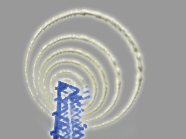
| |
|
|
|
|
||||||
| |
|
|
|
|
|
|
|
|||
 |
|||||||||||||||||||
|
|||||||||||||||||||
Information Literacy: Practical Techniques and Critical AssessmentsInformation literacy incorporates both an understanding of how various media embody information, and of how to think critically about that information. In the language and literature curriculum this information literacy also means understanding how media operate differently within various national contexts. This course introduces students to key issues in conducting research within the context of foreign language study, providing workshops in research methods and digital design (text/image/ sound/video digitization, digital video production, web design, &c.) and promoting internship experiences (area non-profits, faculty research assistance, department/program assistance). We will investigate language-specific source materials (print and electronic) and design/implement criteria for evaluating them. The course is flexibly designed for undergraduate majors, graduate students, and mixed-level classes, and can be implemented as a series of building block courses, as a course sequence spread over 2 semesters, or broken out into a twice-weekly seminar with hands-on workshops throughout the academic year. Discussion and workshop topics will include: 1. Library Research and Bibliographic Methods. Introduce students to the important primary print materials (journals, bibliographies, indices, dictionaries, encyclopedia) in each language-specific area. Depending on enrollment and staffing, workshops may be language-specific. Students will produce a primary source bibliography on a topic/author of their choice including only print-based sources, with annotations explaining their evaluation criteria. 2. Online Research: Web and Electronic Databases. This discussion will focus on electronic reference databases important for language/literature study, the transition from print to electronic journals in scholarly publishing, and how to weed through the many web-based resources available for scholarly research, cultural references, and language study. Students will produce language-specific "linkographies," incorporating URLs that are topical, recent, and intriguing. 3. MOOs, MUDs and MUSHes. Online multi-user environments for real-time communication are excellent models for students to experience a virtual learning environment, and in many cases to practice their language skills. This discussion will touch on many issues related to information ownership/intellectual property, authorship, subjectivity, online identities/avatars, &c. Students will participate in several MOO sessions, research language-specific MOOs, and work in groups to design several areas of a foreign language MOOspace. Requirements: Approval for a dedicated server to run and maintain the MOO software and MOO environment, server administration time. 4. Digital Design and Project Management. This part of the course will incorporate several sessions on how to work with text, image, sound and video materials. At issue here will be how to convert existing analog versions of these materials (books, photographs/slides, audio cassettes/voice narration, videocassettes) into digitally deliverable versions for inclusion in websites, multimedia CD-ROMs and the like. 5. E-Portfolios and Professional Development. This part of the course will assist students with the production of e-portfolios, a digital snapshot of their life and work produced on CD-ROM, and fast becoming popular for many types of job searches upon completion of a degree. The e-portfolio is not just an online résumé, but rather includes examples of each student's academic work, multimedia projects, video or audio interviews with referees, short video collages of important events from the student's college career, among other elements. |
News | Research | Teaching | Digital Development | Links of Interest | Materials | Home
Daniel Gilfillan
School of International Letters & Cultures
Arizona State University
PO Box 870202
Tempe, AZ 85287-0202dgilfil (at) asu (dot) edu
T: (480) 965-8245
F: (480) 965-0135School of International Letters & Cultures
Arizona State University
PO Box 870202
Tempe, AZ 85287-0202
silc@asu.edu
T: (480) 965-6281
F: (480) 965-0135
http://silc.asu.edu